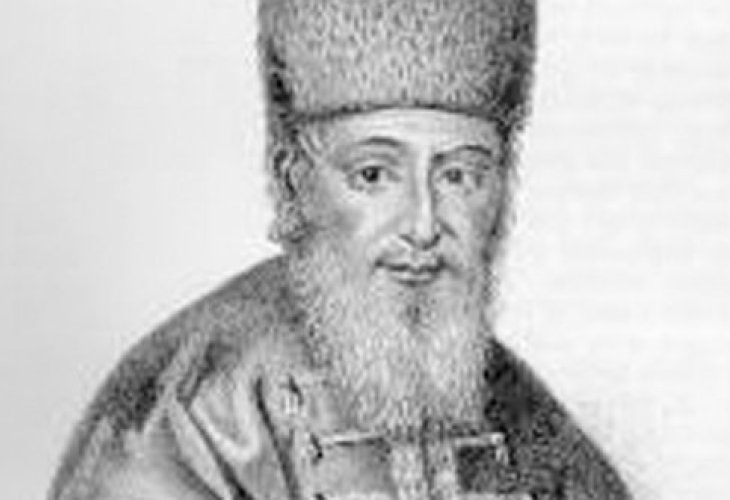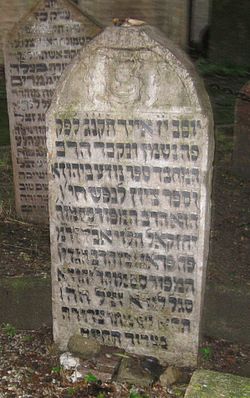Judaism
Rabbi Yechezkel Landau (The Noda B’Yehuda): 10 Fascinating Facts About the Legendary Halachic Authority of Prague
The life, leadership, writings, and enduring legacy of one of Judaism’s greatest decisors

The 17th of Iyar, marks the anniversary of the passing of the “Noda B’Yehuda,” Rabbi Yechezkel Segal HaLevi Landau. Following are 10 facts about this towering Torah figure:
1. One of the Greatest Halachic Authorities of His Generation
Rabbi Yechezkel Segal HaLevi Landau was among the foremost halachic decisors and served as the Chief Rabbi of Prague. He is best known by the name “Noda B’Yehuda,” after his most famous work. Among his many writings are: Tzion LaNefesh Chaya, Ahavat Tzion, Dagul MeRevava, Doresh LeTzion, Mareh Yechezkel, Laws of Marriage According to the Torah and the Talmud (written in German at the request of Emperor Joseph II), Drush Nitzachon, and Drush Hesped.
2. Distinguished Lineage
He was born in Opaťa to Rabbi Yehuda HaLevi, one of the leaders of the Jewish community and a member of the Council of the Four Lands. He was a descendant of Rashi and Rabbi Yochanan the Sandal-Maker.
3. Chief Rabbi of Prague During Wartime
He served as Rabbi of Prague, and his devotion to the Jewish community is evident from the following episode: the Seven Years’ War, during which Prague was besieged by the Prussian army, began shortly after he assumed office. Although he was offered the opportunity to flee the city, he chose to remain with his community and strengthen them during those difficult times.
4. A Leader of Moral Courage
He issued a ban against anyone cooperating with the Prussian army. After the war ended, Empress Maria Theresa of Austria personally thanked him for this stance in the presence of the city’s dignitaries.
5. Inspiring Jewish Soldiers
When Emperor Joseph II ordered the conscription of Jews into the army, Rabbi Landau addressed the Jewish recruits in German before they left, encouraging them to remain faithful to Torah and mitzvot even while serving. His speeches made a powerful impression — even on the non-Jewish soldiers.
 His Grave in the Cemetery in Prague
His Grave in the Cemetery in Prague6. A Life of Asceticism and Self-Discipline
He practiced extensive fasting and self-denial. From Rosh Chodesh Elul until Yom Kippur, he fasted throughout the week and ate only on Shabbat. During the Nine Days commemorating the destruction of the Temple, he ate only dry bread.
7. Opposed Excessive Luxury
He enacted communal regulations against lavish lifestyles meant to imitate non-Jews, declaring: “Why should we resemble the nations? It suits them to rejoice, for they live peacefully in their own lands. But we are a poor nation in exile — what place has excessive joy for us?”
8. Respected Even by His Opponents
Although he was one of the leading Lithuanian rabbis and strongly opposed Hasidism, many great Hasidic leaders deeply revered him.
Rabbi Chaim of Sanz said: “Rabbi Yechezkel beheld the Divine Chariot,” and added: “If Rabbi Yechezkel Landau were alive today, I would crawl beneath his table, for all his intentions were purely for Heaven.” Rabbi Shneur Zalman of Liadi wrote that he was “unique in his generation in halachic rulings, and God was with him so that he never missed the true mark.”
9. A Fierce Opponent of False Ideologies
He was among the leading fighters against the Haskalah (Jewish Enlightenment) movement and against the false messiah Shabbatai Tzvi.
10. A Humble Passing
He passed away on 17 Iyar, 5553 (1793) and was buried in the Prague Jewish cemetery. In accordance with his will, few eulogies were delivered, and only a simple stone marker was placed on his grave.
May his memory be a blessing, and may his merit protect us.

